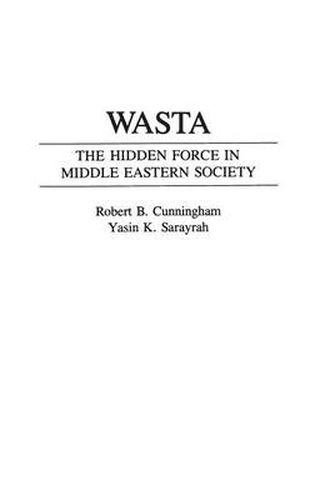Readings Newsletter
Become a Readings Member to make your shopping experience even easier.
Sign in or sign up for free!
You’re not far away from qualifying for FREE standard shipping within Australia
You’ve qualified for FREE standard shipping within Australia
The cart is loading…






Wasta means intercession or mediation. Traditionally, the head of the family in Middle Eastern countries performed wasta services by obtaining for the supplicant what is assumed to be otherwise unattainable. In recent years, wasta has become prominent in seeking benefits from government. Wasta pervades the culture of all Arab countries and is a force in all significant decision-making, yet it is not mentioned by most writers on the Middle East nor is it openly discussed by Arabs themselves. This book explains wasta - its practice, its effects, its advantages, and its social situations - through stories, personal profiles, and descriptions of social situations where its importance is magnified. The authors use Jordan as an example to illustrate the challenge of doing business in, and with, public organisations where kinship, locale, ethnicity, religion and wealth render some people more privileged than others in obtaining employment, university admission, or equal treatment under the law.
$9.00 standard shipping within Australia
FREE standard shipping within Australia for orders over $100.00
Express & International shipping calculated at checkout
Wasta means intercession or mediation. Traditionally, the head of the family in Middle Eastern countries performed wasta services by obtaining for the supplicant what is assumed to be otherwise unattainable. In recent years, wasta has become prominent in seeking benefits from government. Wasta pervades the culture of all Arab countries and is a force in all significant decision-making, yet it is not mentioned by most writers on the Middle East nor is it openly discussed by Arabs themselves. This book explains wasta - its practice, its effects, its advantages, and its social situations - through stories, personal profiles, and descriptions of social situations where its importance is magnified. The authors use Jordan as an example to illustrate the challenge of doing business in, and with, public organisations where kinship, locale, ethnicity, religion and wealth render some people more privileged than others in obtaining employment, university admission, or equal treatment under the law.